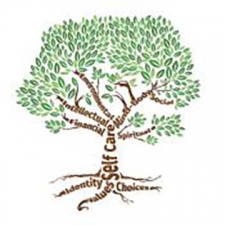We live, learn, and work in a world that is increasingly diverse, and it’s our diversity that adds depth, richness and excitement to the experience of being a part of the Duke community.* Duke Chemistry is a microcosm of individuals with different world views, perspectives, backgrounds, values and experiences. While we are brought together by our love of chemistry, we recognize that we must expand and continuously improve our understanding and skills for knowing ourselves and working effectively with diverse groups of people to create a climate where everyone feels valued, respected and included. Please explore the following links, along with the Related Groups link, to learn more.
Chemical Professional’s Code of Conduct
Collectively, we operate in a professional workplace setting, with professional expectations of excellence and mutual respect. The Chemical Professional's code of conduct, provided by the American Chemical Society, acknowledges the responsibility of chemical professionals to the public, the scientific community, the profession and those engaged in the profession, and the environment.
The Graduate School Commitment to Diversity
The Chemistry Department works closely with The Graduate School to promote and enhance a diverse and inclusive student body. At these Grad School links you will also find diversity and inclusion resources for teaching, and more.
Duke Reach
Grad school at times can be gruelling, stressful, and isolating. Are you concerned about the physical or mental health of a friend, labmate, or yourself? DukeReach directs students, faculty, staff, parents, and others to the resources available to help a student in need. DukeReach is located in the Student Wellness Center and works with departments and groups across campus and in the community, including Housing, CAPS, Student Health, community health providers, the Academic Resource Center, and more.
Know a student or friend in distress? Please complete a DukeReach report via the web, or call 919-681-2455.
Personal Development & Well Being
Maintaining good mental health and overall well-being are critical for success in graduate school and beyond.
- The Student Wellness Center (DUWELL) helps students focus on their individual Wellness by looking at the integration of many areas of their life, including financial, social, spiritual, intellectual, mind-body well-being, and the environment around them.
- Counseling and Psychological Services (CAPS) helps all Duke students enhance strengths and develop abilities to successfully live, grown and learn in their personal and academic lives. They offer many services to Duke undergraduate, graduate, and professional students, including counseling and psychotherapy, consultation, assistance with referrals, and more. They offer a number of workshops on topics like Mindfulness, Anxiety Busters, Grief and more, and their website contains a host of Self-Help pages on on issues including Being Emotional, Committed Relationships in Grad School, Confronting Conflict, and Life Values.
Professional Development
The Graduate School maintains an excellent website that offers information on current opportunities related to graduate student professional development. It includes featured Graduate School offerings as well as those from affiliated offices, including the Office of Research Support, Office of Postdoctoral Services, Center for Instructional Technology, and the Career Center.
Ombuds
The Office of the Ombuds is a confidential, impartial resource for students, staff, and faculty. Whether you’re having academic challenges, interpersonal conflicts, or workplace concerns, the Office of the Ombuds is here to help you navigate your Duke experience with confidence. All services are voluntary and free. For more information or to schedule an appointment, please visit ombuds.duke.edu. Their contact information is: ombuds@duke.edu or 919-864-0772.
Reporting Discrimination and Harassment, including Sexual Assault, Interpersonal Violence, and Stalking
The Duke Graduate School has partnered with the Office for Institutional Equity to create an interactive guide for reporting harassment, discrimination, and other concerns. This guide was designed to help answer common questions that students often have about reporting problematic situations but might be hesitant to ask. The tool assists students understand the options and processes for reporting and provides guidance and resources, to include a list of contacts. We encourage all graduate students to become familiar with the Guide, found here.
Please see links below for contact information for confidential reporting and formal reporting resources.
Confidential Reporting Resources
Office of Gender Violence Prevention and Intervention (for students): Duke Women's Center, 919.684.3897, pager after hours 919.970.2108, wchelp@duke.edu
Student Health Services (for students): 919.981.9355, Emergency Services
Medical Center Emergency Department: 919.684.2413, 888.275.3853
Counseling and Psychological Services (for students): 919.660.1000, Dean on Call: 919.970.4169, Emergency Assistance
Personal Assistance Service (for employees): 919.416.1727, https://pas.duke.edu/about
Ombudspersons: Undergraduate, Graduate and Professional Students: 919.684.6334, ada.gregory@duke.edu, or 919.257.0160 (urgent consultation); Postdoctoral Associates and Fellows: 919.668.3326 or ombudsman@mc.duke.edu; Faculty: 919.613.7055, metzloff@law.duke.edu
Clergy: Pastoral Services, 919.684.3586, Evenings/Weekends: 919.684.8111, pastoralsvc@dm.duke.edu
Durham Crisis Response Center: 24-Hour Line: 910.403.6562
Formal Reporting Options
Discrimination/harassment by graduate/undergraduate students: Office of Student Conduct, 200 Crowell Hall, 919.684.6983, conduct@duke.edu
Discrimination/harassment by employees: Office of Institutional Equity, 114 S. Buchanan Blvd, Bay 8, 919.684.8222
Possible criminal activity, including incidents involving minors: Duke Police, 502 Oregon Street, 919.684.2444 or 911 (emergency)



